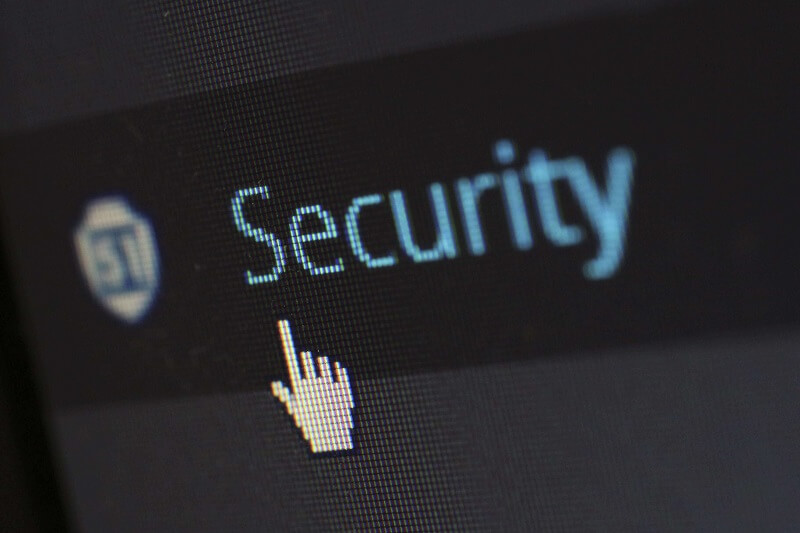
Hey guys, In this article, we will discuss the eight simple WordPress security tricks that can ensure a safe WordPress website in 2024. So keep reading.
WordPress is known for its top-notch security features. Its themes, software, and plugins are all designed to suit unsafe online spaces.
However, due to its popularity, WordPress is also prone to advanced attacks. Hackers are always on the lookout, waiting for an opportunity to access admin information. Since admin logins are the key to accessing any WordPress site, a criminal’s mind is always set on stealing sensitive data.
Luckily, a combined effort can help secure a WordPress website. It’s always up to the owner, provider, and host to work together to prevent information leaks. Often, the website owner has to do the most work. They have to perform audits and check for updates to confirm features are running smoothly.
List of The 8 Simple WordPress Security Tricks:
1. Safeguard Your wp-config.php
2. Select A Reliable Hosting Company
3. Use Strong Passwords And Two-Factor Authentication
5. Regularly Update WordPress, Themes, And Plugins
6. Have A WordPress Backup Solution
7. Secure Your Website With A Lockdown Feature
1. Safeguard Your wp-config.php
The wp-config.php is a crucial part of your website. It is where your login information and website security keys are found. Most hackers target this place because its URL is easy to predict and opens up to other parts of the website.
For this reason, it’s recommended that the wp-config.php directory be moved to a different location. Since it is initially located in the root directory, it’s recommended that it be moved to a varying and higher position.
A point to note is that the WordPress server is set to read any folder placed on a higher level than the root directory. After moving the wp-config.php to a top rank, the server will have no trouble locating it.
2. Select A Reliable Hosting Company

An excellent hosting company will shield your WordPress website from vulnerability. They’ll act as your first line of defense, protecting your website from the significant effects of a cyberattack.
A reliable hosting company generally has a system that ensures your website’s overall protection. They have the latest programs that deal with current threats, and they have a monitoring routine that ensures threats are detected before they happen.
And in case an attack happens, they have a team of experts ready to resolve the issue before things get out of hand.
Additionally, an excellent hosting company has a disaster and recovery plan. The plan deals with major attacks that have gone overboard. If compensation is to be made, they have a routine in place to deal with that. They also have backup solutions to help recover data lost during an attack.
3. Use Strong Passwords And Two-Factor Authentication
Up to 81% of data breaches are due to weak passwords. Apart from weak passwords, the tendency to repeat passwords also increases risks. If let’s say, you repeated a Google password on WordPress, a hacker that has access to it could jeopardize your system.
For safe browsing, create strong passwords. A password with a mix of characters, numbers, and letters is hard to predict. Creating different passwords for different web pages also makes it difficult for a cybercriminal to get to you.

Additionally, consider adding extra security features to your websites. For example, two-factor authentication lets you know when a stranger tries to access your website. The unique code is also a perfect way to ensure that a cybercriminal has little to no chance of opening your website.
For better security, include a proxy to safeguard your IP address. A proxy will mask your online activities and make sure no one can trace your online steps back to the website. Even better is how proxies come with different features to help you pick on the best.
For example, if you want a proxy with more privacy, the rotating residential proxies are a perfect choice. The rotating residential proxies are sourced from internet service providers, and this makes them appear like they are coming from individual residences.
Additionally, the proxy distributes requests across different servers. Because of the distribution, there’s reduced bandwidth and improved network speeds. Proxies work for the good of your website and also other applications on your computer.
4. Use SSL Certificate
Most hosting companies offer free SSL certificates. If yours doesn’t, consider buying one from a third-party provider.
Like the SSL proxy, the SSL certificate encrypts your data. The difference with the proxy is that the SSL certificate is purely dedicated to your WordPress website. The certificate ensures the security of the admin panel, including your WordPress login information and website data. SSL also ensures that information sent between your WordPress server and browser is secure.
Even better is how Google favors sites with SSL certification. If you have a converting website with high-quality content, the SSL certificate will boost your visibility. This later translates to improved traffic and an increase in revenues.
5. Regularly Update WordPress, Themes, And Plugins
Carry out regular updates to ensure you aren’t missing essential features. By performing regular updates, you enhance the security of your website. The updates also fix bugs and potential vulnerabilities. That’s why manually checking and updating your site is essential.
Additionally, please review the plugins and themes you no longer use and remove them. Deleting unnecessary data saves time spent checking for updates. It also boosts your site’s performance since you’ll have fewer applications to worry about.
6. Have A WordPress Backup Solution
Even with all the security measures you’ve put in place, the worst can still happen. You can find your website in the hands of criminals, with most of your information lost. That’s why it’s essential to have a copy of your data. Luckily, WordPress offers both paid and free plugins for data backup.
Remember that backup is not a once-in-a-while activity. It’s something you have to do regularly to ensure that even a threat in the next hour doesn’t inconvenience you.
7. Secure Your Website With A Lockdown Feature
A hacker’s attempt at accessing your website is always through numerous login inputs. For the most part, they will change characters, numbers, and letters to try hacking your password. Since a hacker’s attempt is with standard login formats, such as your birthday or anniversaries, they’ll try different formats numerous times.
By default, WordPress allows for an unlimited number of login attempts. If you want to limit the shots, you have to use the lockdown feature.
The lockdown feature will turn off the login feature if someone wrongfully inputs the details several times. There are also instances where it blocks specific IP addresses from accessing your website. With a good lockdown plugin, you can block hackers from second-guessing your admin details.
8. Monitor Your Logs
WordPress allows multiple users to access a single site. Due to the diversity of the users, there are instances where one can compromise the website. As a website owner, it’s your responsibility to ensure every team member is accessing only the required sites. For this, you may have to perform regular audits.
First, create a website assessment plan that allows you to keep tabs on what others are doing. If you have contributors on the site, confirm that their rights are limited to that task. Confirm the page restrictions and also check who has been visiting what page at which time.
A website assessment is also meant to cover general activities that happen on your websites. Security, SEO, and applications are all part of the assessment process.
A review ensures that all your website features are operating correctly. It also helps you stay up-to-date with current WordPress updates.
Wrapping Up
WordPress security continues to be a big concern for many. However, you can ensure the security of your data by using a strong password, limiting login attempts, and monitoring your website.
Adopting the above simple WordPress security tricks will keep your website safe and boost the performance of your applications.

